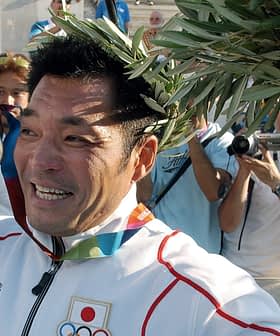Asians Much More Interested in Eating Healthy Than Westerners
The East and West are worlds apart when it comes to healthy eating, an online survey found.
Are the East and West worlds apart, even in the Internet-era of globalization? According to Richard Clarke, director of Ingredient Communications, whose company commissioned a survey called “The East-West Nutrition Divide,” categorically it seems so when it comes to healthy eating.
Anyone who’s interested in promoting healthy eating needs to understand that consumers are different everywhere.
The survey found that Asian consumers are much more invested in improving their dietary habits than consumers in the Western hemisphere, a result Clarke attributed to attitudes on diet and nutrition deeply rooted in history, tradition and culture.
In an online survey commissioned by Clarke’s company and market researchers Asia Opinions in October 2016, researchers asked 600 consumers in Asia and 700 in the Western hemisphere, Australia and New Zealand included, about their views on a slew of dietary issues (500 participants in the survey were from the UK, 200 from India, 200 from the Philippines, 100 from Singapore, 100 from Malaysia, 50 from the US, 50 from Australia, 50 from Canada, and 50 from New Zealand).
It was shown that around seven in ten of Asian respondents surveyed (68 percent) were “very interested” in nutrition and healthy eating, as opposed to 38 percent of citizens in the West. Then, two in five (39 percent) Asian consumers answered that cutting down on their consumption of meat was crucial to achieving a healthy diet.
On the contrary, only 25 percent of Western consumers agreed with this stance. Additionally, Asian buyers appeared roughly three times likelier than Westerners to be more willing to buy a product if it made vegetarian or vegan health claims (28 percent versus 10 percent, respectively).
Among the Asian countries partaking in the survey, India and the Philippines showed the highest interest in healthy eating: 82 per cent of Indian and 71 per cent of Pinoy people responded that they were very interested in healthy eating. This finding came in stark contrast to the attitudes of consumers in the UK and Australia, with only 36 percent of the former and 26 percent of the latter taking the same interest in nutrition and healthy eating, although in the US the figure was as high as 71 percent.
What can one infer of these findings? “Asian consumers have long been well known for their knowledge of and passion for food, and nutrition tends to play a more central role in Asian cultures than it does in the West,” Clarke told Olive Oil Times. “It will take many years for globalization to change habits that have been formed over centuries.”
It is at this exact point that Clarke urges the eater to think glocally, not globally.
The term “glocalization” comes from merging the words “globalization” and “localization.” It is used to describe the adjustment of international products to the particularities of a local culture in which they are traded. This means that the product or service may be tailored to comply with local laws, customs or consumer preferences, making, in effect, glocalized products or services much more interesting and valuable to the end user.
“Anyone who’s interested in promoting healthy eating — whether it’s governments or food manufacturers — needs to understand that consumers are different everywhere. What works in one country may fail in another. The products consumers like, the messages they respond to, and the sources of information they trust all vary hugely between cultures. So the lesson is, do your research and understand your audience.” said Clarke.








